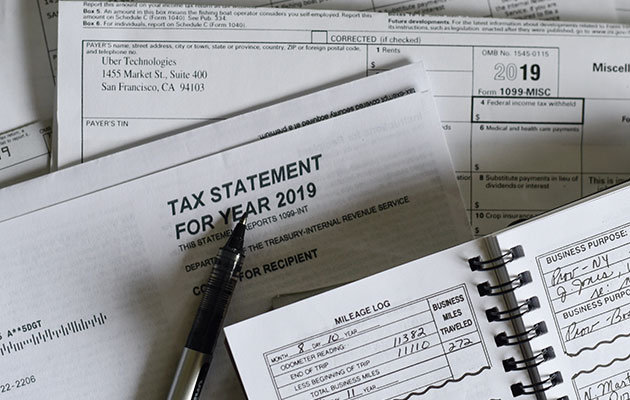-
Articles
The Thai Revenue Department is actively pursuing the collection of Top-up Tax from Multinational Enterprises, and has thus commenced a public hearing on the principle of drafting such legislation
The Thai Revenue Department (“TRD”) is increasing its focus on the collection of top-up tax from Multinational Enterprises (“MNEs”) (whereas traditional income taxes are generally based on a company's taxable profit; top-up tax will only arise if an MNEs pay insufficient income tax at a jurisdictional level). On 2 March 2024, the TRD announced that it has commenced a public hearing on the principle of drafting the Top-up Tax Act B.E….. (Pillar 2 of the Global Anti-Base Erosion Rules (Pillar 2), with the aim of implementing such legislation to be effective in Thailand.
Domestic tax base erosion and profit shifting (BEPS) due to the exploitation by MNEs of discrepancies and differences between the tax systems of different countries affects all countries. The heavier reliance on Corporate Income Tax by developing countries means they suffer disproportionately from BEPS. During a meeting held on 8 October 2021 under the framework of the Organization for Economic Co-operation and Development (“OECD”) and G20 Inclusive Framework on BEPS, over 140 jurisdictions and countries, including Thailand, approved a two-pillar solution, including 15 Actions, to tackle tax avoidance, improve the understanding and transparency of international tax rules, and address the various tax challenges arising from the Digitalization of the economy. This approach aims to reform tax collection in the digital economy and consists of the following:
Pillar 1: Profit allocation and tax collection rights for large MNEs, thus to ensure greater fairness.
Pillar 2: Implementation of a Global Minimum Tax for large MNEs, thus ensuring that large MNEs will pay a minimum level of tax on the income arising in each of the jurisdictions where they operate, and to reduce International Tax Competition. It specifies that said MNEs should pay income tax at an Effective Tax Rate (“ETR”) of not less than 15%.
On 7 March 2023, the Thai Cabinet approved in principle, in line with the proposal from the Board of Investment (“BoI”), the measures to support implementation of a Global Minimum Tax, and thus assigned the Ministry of Finance, through the TRD, to enact laws and/or determine appropriate approaches, as follows:
- Collection of Top-up Tax under the principles of Pillar 2;
- Allocation of revenue from the collection of Top-up Tax based on the principles of Pillar 2 to the National Competitiveness Enhancement Fund, of at least 50% but not exceeding 70% of the aforementioned revenue; and
- Supply information of taxpayers who pay the Top-up Tax to the BoI.
In this regard, the TRD invited stakeholders for public hearings to provide their comments and suggestions on the principle of drafting the legislation via the central legal system website or the TRD's website from 1 March 2024 to 15 March 2024.
Furthermore, Pillar 2 poses comprehensive challenges for MNEs. It is recommended that MNEs with the Ultimate Parent Entity (“UPE”) based in Thailand should promptly conduct a tax impact assessment. This is particularly important because Pillar 2 comprises a set of interlocking rules, enabling jurisdictions outside Thailand that have adopted Pillar 2 rules as of 2024 to levy Top-up Tax before these rules take effect in Thailand. Conversely, for MNEs with their UPE located outside Thailand, careful consideration should be given to potential updates to the BoI’s existing investment promotional measures, as well as to how Pillar 2 might influence the amount of tax paid in Thailand.
Please find the link below for detailed documents on the public hearing under Section 77 of the Constitution of the Kingdom of Thailand, B.E. 2560 (2017).
Principle: Draft Top-up Tax Act B.E…..
https://www.rd.go.th/fileadmin/user_upload/kormor/newlaw/Hearing010367-150167.pdf
Source: https://www.rd.go.th/66274.html
This is intended merely to provide a regulatory overview and not to be comprehensive, nor to provide legal advice. Should you have any questions on this or on other areas of taxation law, please do not hesitate to contact our Tax Team of SCL Nishimura & Asahi Limited.
Areeya Ananworaraks
Counsel
Pairaya Yangpaksi
Associate





Areeya Ananworaraks was previously a legal officer at the Thai Revenue Department. She has 18 years of legal and tax consulting experience. Her specialties including corporate matters, M&A, joint venture, IPO & REIT, corporate secretary (company secretary), commercial contract, property, family business, international business, offshore incorporation, corporate income tax, personal income tax, international tax, value added tax, specific business tax, stamp duty, petroleum income tax. Areeya has extensive on cross border transactions, tax inspection, petroleum business and legal matters. In addition, she has advised numerous MNCs clients on establishing operations in Thailand and listed companies in the Thai Stock Market as well as carrying on due diligence assignments.